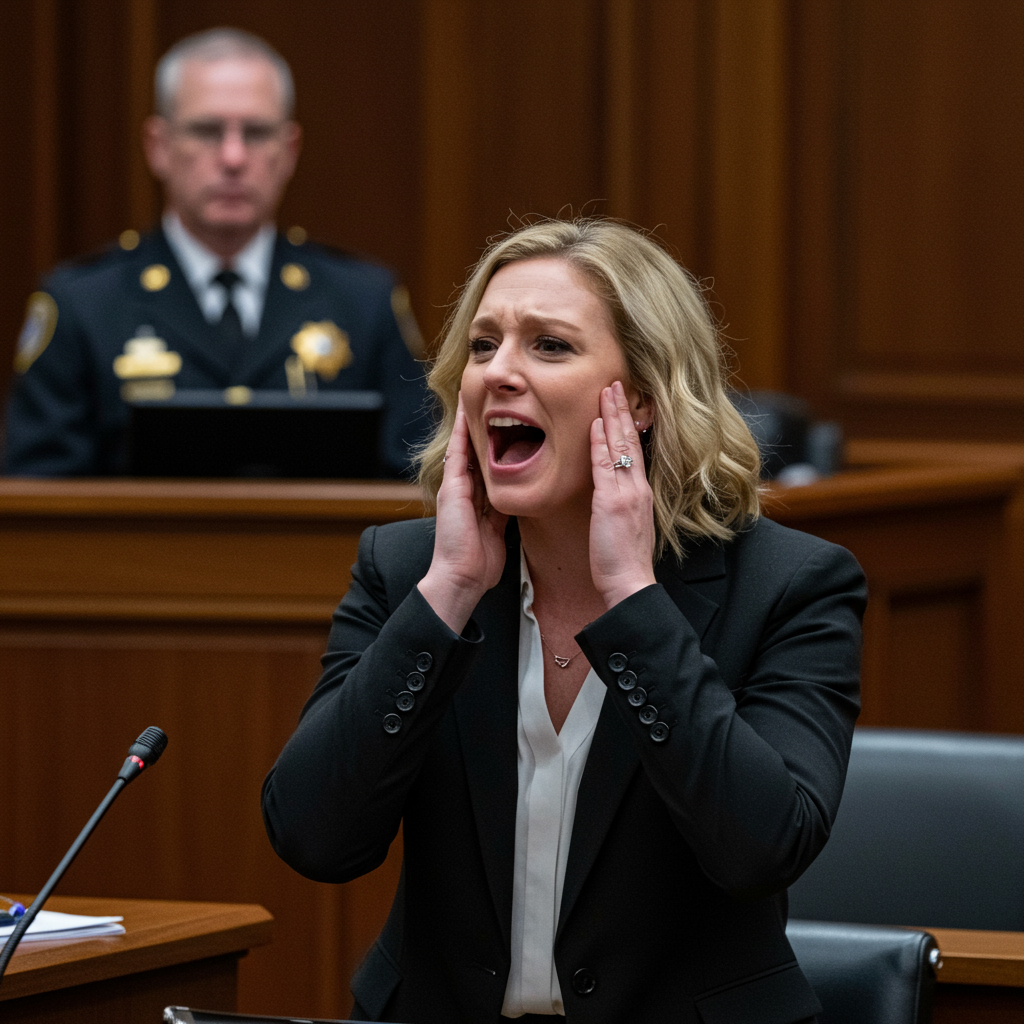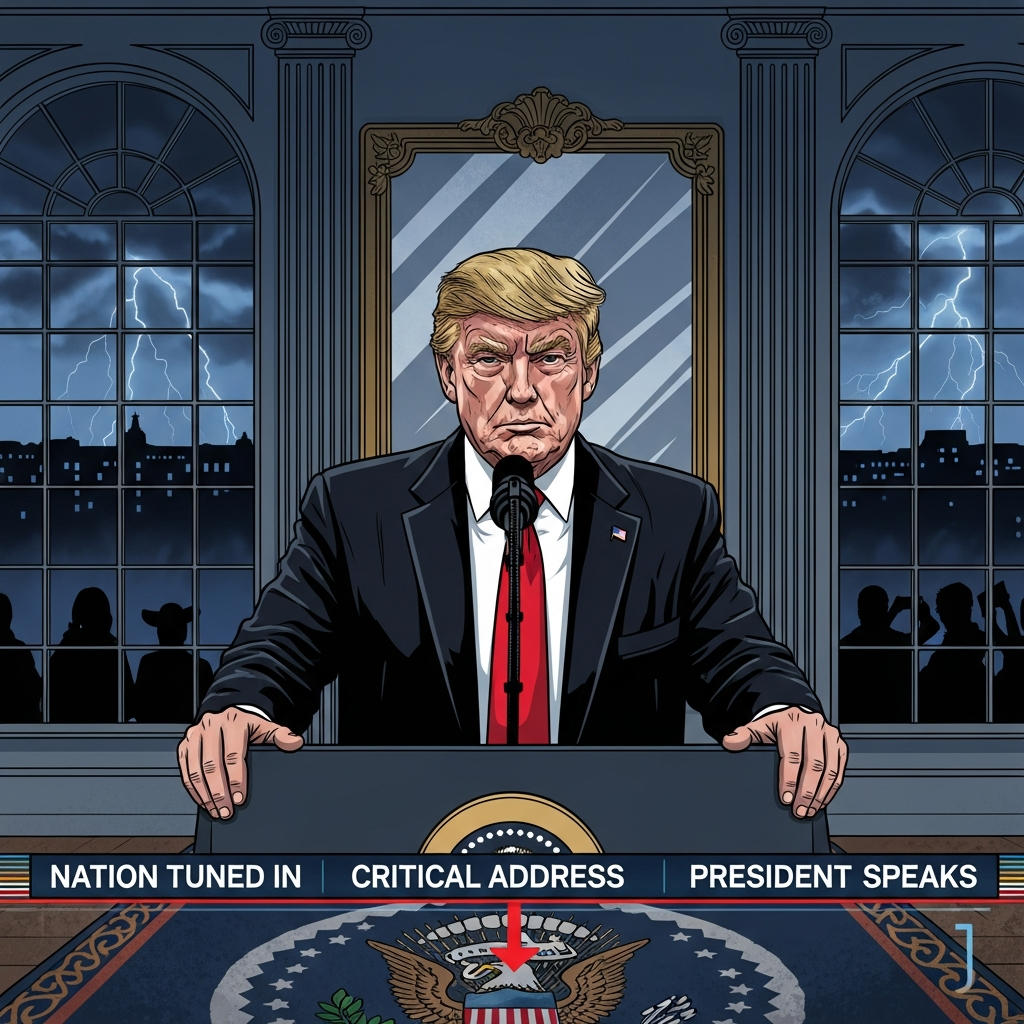Former President Donald Trump has issued a sweeping series of pardons. These acts of clemency include his former personal lawyer, Rudy Giuliani, alongside dozens of other key allies. All were previously accused of various efforts to overturn the 2020 presidential election results. This significant move reignites intense political debate across the United States. It underscores the ongoing legal and political complexities stemming from the last election cycle.
These high-profile pardons signal a definitive stance by the former president. The recipients faced accusations related to challenging the certification of Joe Biden’s victory. This includes charges linked to various state-level legal proceedings. While the pardons carry substantial symbolic weight, their practical effect remains limited for many. This distinction is crucial for understanding their true impact.
A Sweeping Act of Clemency for Election Challengers
President Trump’s recent pardons extend to a broad group of individuals. Notably, Rudy Giuliani, his former personal lawyer, received federal clemency. Mark Meadows, who served as Trump’s White House chief of staff, was also pardoned. The former president announced these decisions with a strong declaration. He stated his intention to “end a grave national injustice.” This move, he proclaimed, would continue “the process of national reconciliation.”
Beyond these prominent figures, the clemency list includes several so-called “false electors.” These individuals allegedly attempted to disrupt the official certification process. Their actions aimed to prevent the formal recognition of Joe Biden as the winner. Other beneficiaries include former Trump legal team members. This includes attorneys Sidney Powell, Jenna Ellis, John Eastman, and Kenneth Chesebro. They all filed unsuccessful lawsuits challenging the 2020 vote outcome.
The Symbolic vs. Substantive Impact of Federal Pardons
A critical aspect of these pardons lies in their jurisdiction. Presidential pardons apply exclusively to federal crimes. However, a significant number of the recipients faced charges at the state level. This includes allegations in battleground states like Georgia and Michigan. Consequently, for many of those pardoned, the federal clemency offers little direct legal relief. State prosecutors maintain their authority over state-level charges.
This distinction renders many of the pardons largely symbolic. They represent a strong statement of support from former President Trump. Yet, they do not resolve the underlying state prosecutions. Legal experts widely confirm this limitation of presidential authority. The move expresses a political sentiment more than a comprehensive legal shield.
At the Heart of the Controversy: The 2020 Election Challenges
The pardoned individuals were implicated in various strategies to contest the 2020 election. These efforts spanned multiple states and involved different legal tactics. The concept of “false electors” is central to many of these allegations. These individuals convened in several states after the 2020 election. They cast electoral votes for Donald Trump, despite Joe Biden winning the popular vote in those states. This action aimed to create a legal dispute over the certified results.
The broader objective, according to prosecutors, was to disrupt the peaceful transfer of power. These challenges extended beyond the courts. They involved public statements and organizational efforts. The claims frequently alleged widespread voter fraud and irregularities. Many of these allegations were later debunked by courts and election officials.
High-Profile Figures and Their Legal Woes
Rudy Giuliani’s involvement in these post-election challenges led to severe consequences. He declared bankruptcy two years ago. This followed a court order for him to pay $148 million. The judgment stemmed from spreading false information about Georgia election workers. He also faced disbarment from practicing law. This occurred in both Washington D.C. and New York. His legal career saw significant upheaval as a result of his election-related activities.
Similarly, Sidney Powell made highly controversial claims after the 2020 election. She asserted that electronic voting systems switched millions of votes to Biden. Powell also alleged “communist money” influenced the Democrat’s victory. These claims were widely discredited. They even led Mr. Trump’s own legal team to distance itself from her public statements. The legal battles faced by these individuals highlight the intensity of the post-election period.
Broader Context of Legal Battles and Presidential Pardons
These recent pardons fit within a larger pattern. President Trump has frequently used his clemency powers to aid allies. Earlier this year, upon his return to office, he pardoned hundreds. These were supporters charged in connection with the 2021 US Capitol riot. This consistent use of pardons reinforces his political posture. It projects a narrative of defending those he believes are unjustly targeted.
The former president himself faced prosecution related to the 2020 election challenges. However, the case brought by Biden’s Justice Department was dismissed. This dismissal occurred after Trump’s re-election, adding another layer to the complex legal landscape. Furthermore, many other election-related cases against Trump allies have faced setbacks. Cases in Arizona, Georgia, Nevada, Michigan, and Wisconsin have stalled or collapsed. For instance, a Michigan judge dismissed forgery and conspiracy charges against 15 Republicans last September. These Republicans were accused of a plot to support Trump’s 2020 election claims.
Understanding the Electoral College and ‘Electors’
To fully grasp the context, it’s vital to understand the Electoral College. This body officially elects US presidents. It comprises 538 members, known as electors. Each state is allocated a number of electors based on its population. These electors typically vote for the candidate who wins the popular vote in their state. The “false electors” scheme aimed to subvert this traditional process. By submitting alternative slates of electors, they sought to create ambiguity. This would then challenge the legitimate outcome in key states.
Political Reactions and Future Implications
The White House press secretary, Karoline Leavitt, commented on the pardons. She stated that “getting prosecuted for challenging results is something that happens in communist Venezuela, not the United States of America.” Leavitt added that President Trump was “putting an end to the Biden Regime’s communist tactics once and for all.” This statement reflects the strong partisan framing of these events. It aligns with Trump’s narrative of political persecution.
These pardons are likely to have lasting political implications. They may galvanize Trump’s base. However, they could also further alienate those concerned about election integrity. The debate over the 2020 election remains a deeply divisive issue in American politics. This latest action ensures it will continue to be a focal point. It reinforces the ongoing battle over historical narratives. The legal system will likely continue to grapple with the aftermath of the 2020 election challenges.
Frequently Asked Questions
What is the primary effect of President Trump’s pardons for 2020 election allies?
President Trump’s pardons for individuals like Rudy Giuliani and Mark Meadows primarily provide clemency for any federal crimes related to alleged efforts to overturn the 2020 election results. This means they are absolved of federal charges. However, a significant number of the accusations and ongoing legal proceedings against these individuals, particularly the “false electors,” are at the state level. Therefore, for many recipients, the federal pardon is largely symbolic and does not shield them from state-level prosecution or civil liabilities.
Why are these federal pardons considered largely symbolic for many recipients?
These federal pardons are considered largely symbolic because presidential clemency only applies to offenses against federal law. Many of the individuals pardoned, including “false electors” and other allies, face or have faced charges brought by state prosecutors in states like Georgia, Michigan, and Arizona. Since state-level charges fall outside the scope of presidential pardoning power, the federal pardons do not offer protection from these specific state legal battles, limiting their practical effect for those facing non-federal accusations.
What are the broader political and legal implications of these specific pardons?
The pardons carry significant political weight, signaling President Trump’s continued support for those who challenged the 2020 election. This action reinforces his narrative of political targeting and likely energizes his base. Legally, while limited in direct effect on state cases, these pardons could influence public perception and political discourse. They highlight the ongoing tension between presidential power, state legal systems, and the deeply divided interpretations of the 2020 election events, ensuring the debate remains a central theme in American politics.
These pardons highlight the complex interplay of legal authority and political strategy. They offer a clear statement from the former president. Yet, they leave many core legal questions unanswered at the state level. The saga of the 2020 election and its aftermath continues to unfold. This makes understanding the nuances of these pardons essential for informed citizens.


